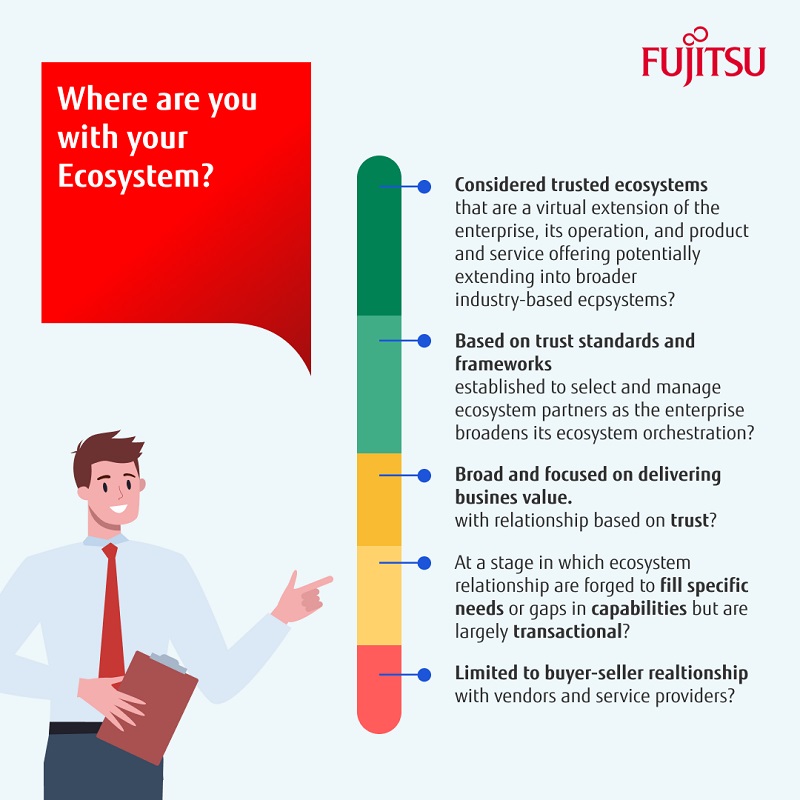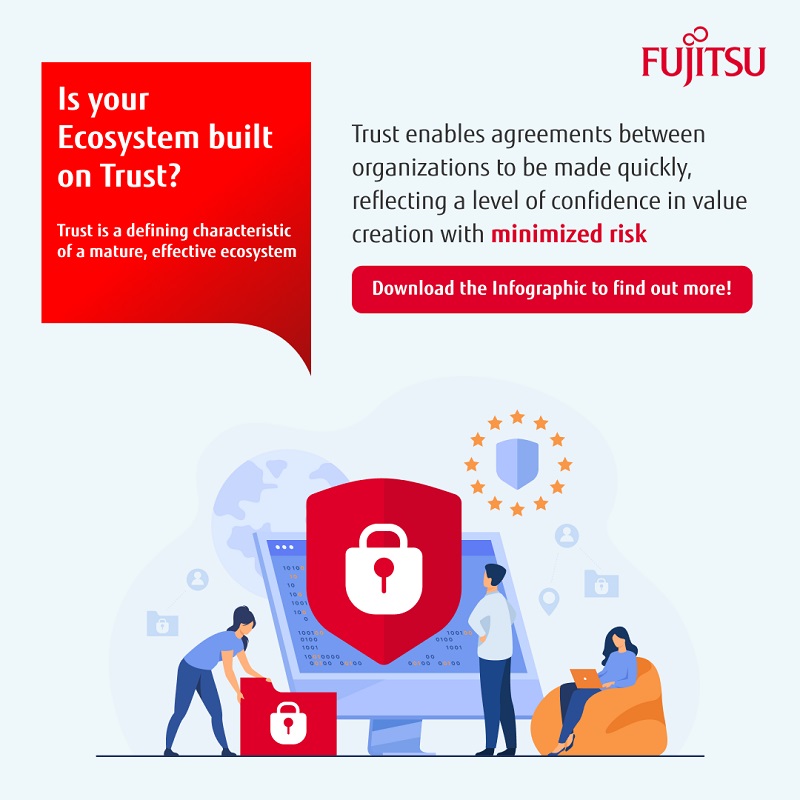It would be an understatement to say the COVID-19 pandemic has brought significant disruption. The pandemic has completely redefined disruption, particularly around value chains, including supply chains, customer value chains, and services value chains. This change has resulted in accelerated digital transformation and the rise of digital ecosystems that are leveraging digital platforms to deliver scale and speed as well as federate data from connected products, assets, people, and processes.
IDC predicts that by 2025, 75% of organizations will adopt digital platforms and ecosystem capabilities.
Closer to home, IDC’s APEJ DX Executive Sentiment Survey shows that over 37% of organizations in Asia/Pacific excluding Japan (APEJ) are pursuing an open platform business model in which their source of competitive advantage is their synergies established with their ecosystem partners.
In the latest IDC Asia/Pacific survey, 18.2% of Singapore organizations indicated they are well-aligned with their ecosystem; and 9.1% of the surveyed organizations in Singapore said they have an ecosystem-based co-creation model to drive innovation.
In contrast, almost 40% of Singapore organizations describe their ecosystem as being largely “limited” to buyer-seller relationships with vendors and service providers; and 18.2% believe their ecosystem is largely transactional in the same study.
A digital platform is an assembly of technologies, capabilities, and data upon which digitally-enabled businesses run. Li & Fung partnered with JD.com to digitalize its supply chain for example, allowing the company to diversify faster, respond better to supply chain disruptions, and drive innovation.
The ecosystem-backed capability for data lifecycle management — including privacy, security and data realization — is heightening the competitive divide between data haves and have-nots because the data exchanges, intelligence, and network effect within digital ecosystems generate significant new value.
Given the need for speed and agility in a volatile and hyperconnected digital economy, organizations need to develop a “trust framework” that allows for assessing, managing, and measuring risk in their ecosystem. It will help accelerate the process of establishing relationships that drive trustworthiness within the ecosystem. Trust is a defining characteristic of a mature, effective ecosystem.

Trust has a key role within ecosystems as ecosystem-based competitive strategies mandate a win-win mindset in attracting and acquiring users and strategic partners. Trust enables decisions to be made between two or more entities that reflect a level of confidence — both in terms of quantifiable risks and subjective reputation — for a successful exchange of mutual benefit to occur. It also ensures integrity in transactions and allows agreements to be made quickly between organizations.
Maintaining the trust of customers and other stakeholders goes beyond preventing cyberattacks and data breaches and achieving regulatory compliance. The core components of IDC’s definition of trust include the foundational element of risk, the compulsory elements of security and compliance and, finally, the strategic elements of social, environmental responsibility, ethics, and privacy. Three inter-dependent outcomes — namely trusted ecosystems, trust-enabled commerce and trusted governance — can be achieved through effective risk management, regulatory compliance, and security management and by promoting privacy, ethics, and social responsibility.
At a time when disruptions are becoming more frequent and volatile in nature, investing in a trusted ecosystem makes more sense than trying to acquire specific capabilities or counter specific risks. IDC offers the following actionable guidance to all organizations, especially for IT departments which aim to build the necessary capabilities to stay resilient amid market volatility:
- Adopt an effective IT services catalog that empowers digital ecosystems and ensures availability of all technologies and standards
- Define KPIs including partner risks and the value of risk mitigated that drive investment and enablement
- Actively monitor and assess your ecosystem to identify potential points of failure early
- Aim for the gold standard in digital transformation by becoming a Future Enterprise, one that adopts an outside-in approach
- Leverage your ecosystem of stakeholders, including customers, partners, employees, and communities, to dynamically evolve your business model
How would you describe your organization’s approach to your ecosystem? Is your ecosystem based on trust? To learn more about the relationship between trust, ecosystems and business success in uncertain times, download our free infographic, “Building a Trusted Ecosystem for Digital Resiliency”.

















